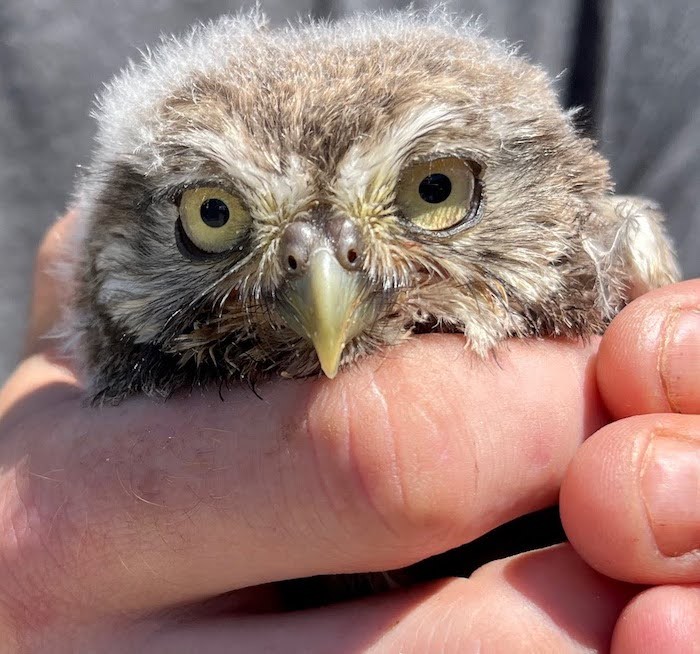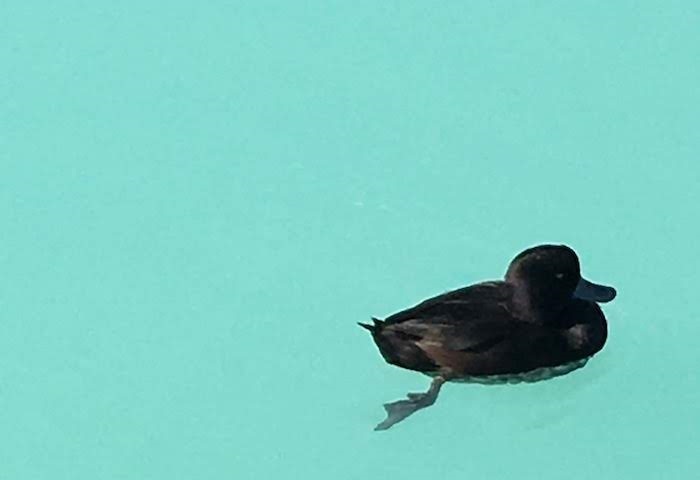Nest egg for bird rescue
Cathy Romeyn
13 December 2022, 4:30 PM
 $4,000 prize money isn’t chickenfeed: it will go a long way to help save this little fellow
$4,000 prize money isn’t chickenfeed: it will go a long way to help save this little fellowAlan Parker from Avian Rescue Otago was awarded the ASB Good as Gold award - worth $4,000 - last week (December 9).
Two years ago, Alan set up his Alexandra-based rehabilitation clinic specialising in the treatment of domestic and native bird life.
He is “thrilled” to have his work (and that of his volunteers and supporters) recognised, and said the award money will be a welcome supplement to his monthly out-goings.
“I didn’t know I was nominated, let alone had won, until Friday night,” Alan told the Central App.
Alan qualified as a general practice veterinarian nurse from Otago Polytechnic but after a few years in practice he embarked on further study in bird care when he noticed specialised knowledge in the area was limited.
There are now about 20 permanent residents at Alan’s, including cockatoos, budgies and a galah.
These domestic birds have generally been given into his care due to “behavioural” problems i.e. “bad manners and rude temperaments”, according to Alan.
“I’d rather take them in and care for them, than have them shuffled from home to home,” he said.
He has a particular interest in native birds and recently returned from Southland after collecting an orphaned owlet.

Cute and protected: The German owl was introduced in the 1930s to help control finches and sparrows in orchards. It is not permitted to keep them as pets in New Zealand
Alan estimates the baby bird is about three weeks old, and at 98gm is extremely vulnerable. Its ideal weight at this age is around 130gm.
The owlet is being fed on chopped up fresh meat and is monitored around the clock. It will eventually move to a large enclosure to learn how to fly and once fully recovered will be released back to where it was found in Southland.
These owls are den nesters; they look for holes in trees, walls, hay sheds and wood piles. Alan said people should be careful around these areas during the breeding months of October to January.
Unlike our native ruru (morepork), the little owl is often out and about during the day as well as night.
One of Alan’s patients (as he refers to them), was featured in Mayor Tim Cardogan’s Central App column recently. The mayor found the scaup duckling in a dismal state and delivered it to Alan’s care.

Scaup duck: the black, “bath-toy'' shaped duck is native to New Zealand and is a common site on Central’s lakes
After medical treatment and excellent foster care, the duckling is making a good recovery and will be released in a few weeks.
Alan’s most unusual patient has been a young albatross, rescued last month after getting lost in a storm. So lost, it was found on a farm in the Ida Valley.
The wayward mariner is now at the Dunedin Wildlife hospital, receiving care before being released back to the coast.
Find more information, or offer to help Avian Rescue, here.




